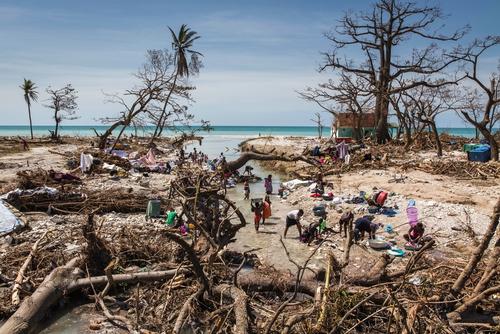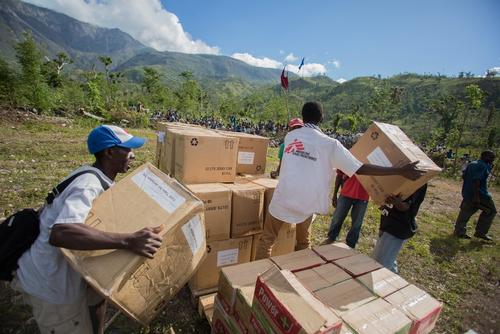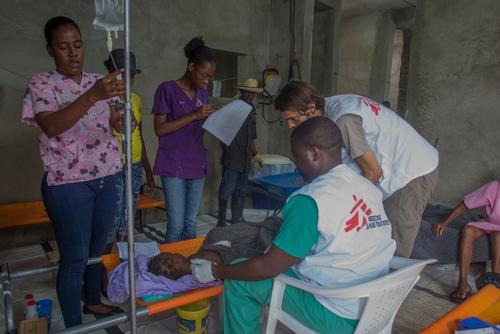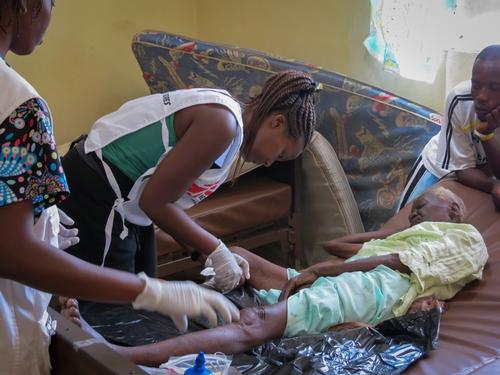Teams are continuing their assessments of areas of Haiti affected by Hurricane Matthew on the Tiburon Peninsula, as well as the Artibonite and Northwest departments.
In Jérémie, MSF found that the reference hospital has suffered damage and lacks water and electricity. There are a significant number of hurricane survivors with infected wounds, and also cholera cases. The MSF team carried out 250 medical consultations this weekend.
In Port-à-Piment, people are drinking water from untreated sources, and there are cases of cholera. Yesterday, an team brought medical supplies to the town and treated 39 cholera patients.
In Petite Rivière de Nippes, an MSF team carried out about 200 medical consultations in the last two days. There is a fairly high number of people with foot wounds from walking in flooded areas, and reports that many people are drinking river water because of the lack of clean water.
An MSF team that travelled to the Artibonite and Northwest departments found that several health centres and cholera treatment centres were damaged, as were wells and water networks. Many farms are also damaged. The population is collecting water from rivers and other untreated water points.
MSF teams are working to reach more affected areas in the southwest. Access remains difficult due to damage to bridges and roads. There are also plans to assess the needs in nearby mountainous areas in the coming days.
8 October 2016 - In the aftermath of Hurricane Matthew, which struck Haiti on 4 October, four teams from MSF are assessing the needs at medical facilities and affected communities in five departments of the country: Grande Anse, Sud, Nippes, Artibonite and Nord-Ouest.
Access to the affected areas is difficult and the full scale and nature of the needs have yet to be determined. Haitian officials report a death toll in the hundreds that continues to rise. The risk of cholera is very high in affected areas.
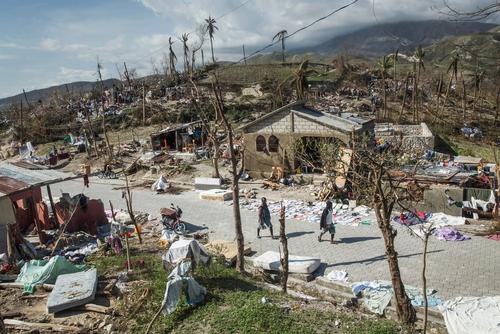
MSF teams traveled by helicopter and by road to the Sud department and observed extensive destruction of houses and communities along the coast between Tiburon and Port-à-Piment.
People are beginning to arrive at local hospitals, many with injuries to their feet and legs that are starting to become infected. The MSF team provided first aid to wounded hurricane survivors and donated medical supplies to treat wounds at the General Hospital of Les Cayes. The hospital is expecting to see a rise in the number of patients in the coming days.
After viewing the destruction from the air in Grande Anse department, an MSF team is seeking to reach coastal areas this morning, if road access is possible.
An MSF team reached Nippes department last evening to begin assessing the needs, providing basic medical care and responding to cholera as needed.
Another MSF team is currently traveling by road in the Artibonite and Nord-Ouest departments to assess existing health facilities, with a focus on needs related to water, sanitation and displacement.
MSF runs multiple projects in the Port-au-Prince metropolitan area: the burns unit in Drouillard Hospital, the Martissant 25 emergency centre, the Nap Kenbe Emergency Surgical Hospital, the Centre de Référence des Urgences en Obstétrique (CRUO), the Pran Men'm clinic for survivors of sexual and gender-based violence, and the Figaro cholera treatment centre that can be operational in a few hours. MSF also supports the Diquini centre for cholera patients.



